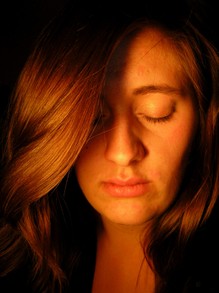If your anxiety has resulted in physical symptoms or a mental condition such as depression, ask your doctor for advice. He or she may recommend a short course of medication, which is only the starting point for the recovery process rather than a solution in itself. Perhaps most importantly, you may need to develop a new, more positive attitude to life and decision-making in which you concentrate on the present, identify the problems you are facing, make your decisions, and act promptly.

How to deal with Anxiety
by John84
If you or a member of your family feels under pressure, take action to manage the problem. First, the stressful factors must be identified and confronted. It is usually helpful to
If you or a member of your family feels under pressure, take action to manage the problem. First, the stressful factors must be identified and confronted. It is usually helpful to talk frankly with those at the source of the problem, whether it is your spouse, your children, your parents or your employer.
If your anxiety has resulted in physical symptoms or a mental condition such as depression, ask your doctor for advice. He or she may recommend a short course of medication, which is only the starting point for the recovery process rather than a solution in itself.
Perhaps most importantly, you may need to develop a new, more positive attitude to life and decision-making in which you concentrate on the present, identify the problems you are facing, make your decisions, and act promptly. Setting aside time for yourself, away from your work and your daily worries, is a good antidote to stress. Don't allow yourself to mope around brooding unproductively. Even if you feel "down," take a brisk walk around the block or find another activity that will give you pleasure and allow you to relax.
Relaxation Technique for Anxiety
Inevitably, anxiety will cause you tension from time to time, but there are methods you can use to relax. Many of them can be done anywhere, anytime. You can try consciously to slow your breathing by taking deep, even breaths for 5 minutes whenever you feel the onset of tension. Or you can try a simple meditation method - just sit upright with your eyes closed in a quiet room and empty your mind of thoughts by concentrating on an image that has no emotional connotations. Gradually extend the meditation period from 5 minutes twice a day to 20 minutes at each session.
All forms of strenuous physical exercise help relieve tension caused by stress. In addition, the fatigue that follows strenuous exercise is conducive to sleeping soundly. You awake refreshed, alert, and better able to concentrate, all of which are useful in helping you respond to stress more effectively.
Natural Stress Relief through Exercises
Muscles that have become tensed by stress can be relaxed by these simple exercises. When doing them, it is best to wear loose, comfortable clothing that allows you to move freely. Repeat the exercises, one after the other, for 8 to 10 minutes. Then lie totally limp for a few more minutes to complete the session.
- Lie face up on the floor with your eyes closed and your arms flat at your sides.
- Tense your face muscles and then let them relax.
- Lift your head and let it fall gently back. Keep your neck and jaw relaxed so that you can feel your throat opening.
- Press your shoulders down to the floor and then relax them.
- Stretch out your arms and fingers. Hold them rigid for a moment before easing the strain completely.
- Lift your buttocks and let them fall, feeling your spine stretch and relax as you do so.
- Keep your heels together, stretch your legs and toes. Then relax completely.
You might also like
Anxiety Relaxation Techniques with Breathing ExercisesBreathing exercises and Pranayama asana are one of the primary anxiety relaxa...
Fighting Anxiety AttacksAnxiety attacks can paralyze the victim to a point of inaction, while taking ...





 What Causes Anxiety and Stresson 10/20/2015
What Causes Anxiety and Stresson 10/20/2015
 Understanding How to Stop Tooth Painon 10/20/2015
Understanding How to Stop Tooth Painon 10/20/2015
 What is Metatarsalgia - Diagnosis and Treatmenton 09/10/2015
What is Metatarsalgia - Diagnosis and Treatmenton 09/10/2015
 What is Foot Pronationon 09/07/2015
What is Foot Pronationon 09/07/2015


Comments